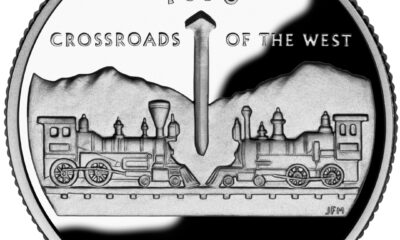Accountability
Trudeau’s ‘anti-hate’ bill will allow Canadians to preemptively report hate speech

Hate speech legislation that has been proposed in Canada would allow people to take other individuals to court if they believe that person will post content in the future considered hateful online.
The legislation was reintroduced by Diversity Minister Ahmed Hussen following the events that have taken place in Ottawa in the past few weeks.
Bill C-36 notes that “a person may, with the Attorney General’s consent, lay an information before a provincial court judge if the person fears on reasonable grounds that another person will commit (a) an offence under section 318 [advocating genocide] or subsection 319 [inciting or promoting hate, promoting hatred].”It additionally covers “an offence motivated by bias, prejudice or hate based on race, national or ethnic origin, language, colour, religion, sex, age, mental or physical disability, sexual orientation, gender identity or expression, or any other similar factor.” The bill’s reintroduction came from Diversity Minister Ahmed after the events that have occurred in Ottawa regarding the Freedom Convoy in which a small number of individuals at the protests carried hateful symbols like the swastika.
Ahmed said the symbols were “reprehensible,” adding that the government would bring back the bill that had died when the election was called last year. “Seeing symbols of hate right across the doorstep of our Parliament is unbelievable and should be condemned,” he said.
The bill offers that “hatred means the emotion that involves detestation or vilification and that is stronger than dislike or disdain.” But academics and human rights advocates noted that the first version of the bill, which had been proposed by Heritage Minister Steven Builbeault, was “aggressive,” “punitive,” and “disturbing.”
“The proposals fail to account for the importance of protecting the kinds of expression that are most central to a free and democratic society including journalism, academic scholarship and public interest research, debate, artistic creation, criticism and political dissent,” said the University of Toronto’s Citizen Lab.
-

 Civilization3 days ago
Civilization3 days agoA Better U.S. Strategy for Greenland Than Annexation
-

 Education3 days ago
Education3 days agoIgnoring the Science: The Curious Case of Cell Phone Bans
-

 Guest Columns5 days ago
Guest Columns5 days agoWaste of the Day: Thousands of Earmarks in Illinois State Budget
-

 Executive3 days ago
Executive3 days agoWaste of the Day: Utah University Trustees Don’t Know Their Job
-

 Education4 days ago
Education4 days agoA Solid Core Enlivens Free Speech and Viewpoint Diversity
-

 Civilization4 days ago
Civilization4 days agoEnd the Filibuster – Or Stop Pretending To Govern
-

 Executive4 days ago
Executive4 days agoWaste of the Day: $8 Water Filter Costs the Government $156
-

 Civilization2 days ago
Civilization2 days agoTrump’s Longest Speech, His Shortest Margin for Error

